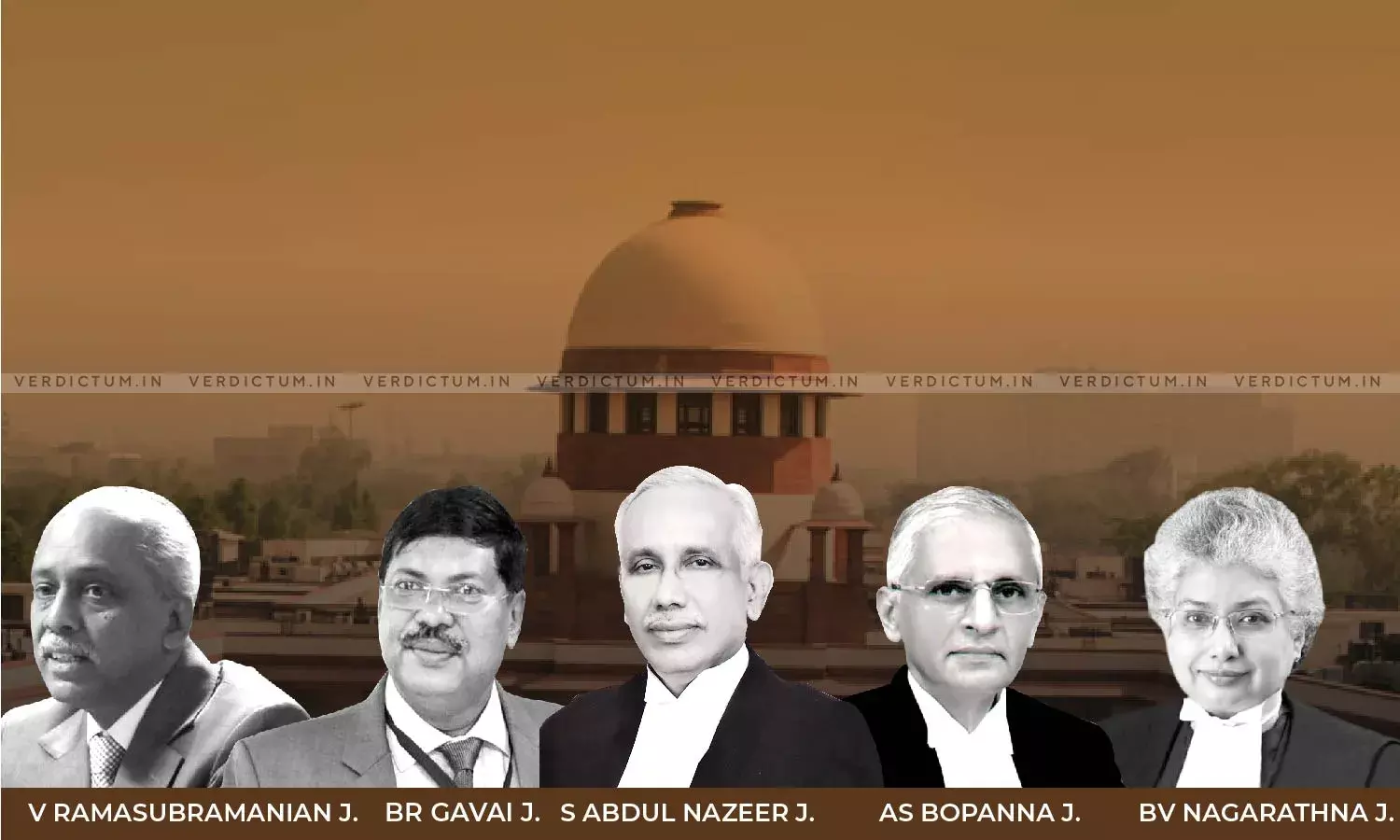No Legal Bar To Base Conviction Upon Hostile Witness Testimony If Corroborated By Other Reliable Evidence: SC

The Supreme Court has observed that there is no legal bar to raise a conviction upon a "hostile witness" testimony if corroborated by other reliable evidence.
The Court noted that the fact that a witness has been declared "hostile" does not result in an automatic rejection of his evidence.
The Court further added that even the evidence of a "hostile witness" if it finds corroboration from the facts of the case may be taken into account while judging the guilt of the accused.
The Constitution Bench of Justice S. Abdul Nazeer, Justice B. R. Gavai, A. S. Bopanna, Justice V. Ramasubramanian and Justice B. V. Nagarathna was dealing with the question- Whether, in the absence of direct evidence of demand of bribe, is it not permissible to draw an inferential deduction of culpability/guilt of a public servant under Prevention of Corruption Act based on other evidence.
Senior Advocates S. Nagamuthu and M. Karpaga Vinayagam appeared for Appellants whereas ASG Aishwarya Bhati and ASG Jayant K.Sud appeared for Respondents.
The Court observed that proof of demand and acceptance of illegal gratification by a public servant as a fact in issue by the prosecution is a sine qua non in order to establish the guilt of the accused public servant under Sections 7 and 13 (1)(d) (i) and(ii) of the Act.
The Court held that the prosecution has to first prove the demand of illegal gratification and the subsequent acceptance as a matter of fact for conviction of the accused.
The Court also noted that the proof of demand and acceptance of illegal gratification can also be proved by circumstantial evidence in the absence of direct oral and documentary evidence.
The Court further observed that "…under Section 7 of the Act, in order to bring home the offence, there must be an offer which emanates from the bribe giver which is accepted by the public servant which would make it an offence. Similarly, a prior demand by the public servant when accepted by the bribe giver and inturn there is a payment made which is received by the public servant, would be an offence of obtainment under Section 13 (1)(d) and (i) and (ii) of the Act."
The Court held that the presumption of fact with regard to the demand and acceptance or obtainment of bribe may be made by Court way of an inference only when the foundational facts have been proved by oral and documentary evidence and not in the absence thereof.
The Constitution Bench found no conflict in the three-Judge Bench decisions of the Court in B. Jayaraj and P. Satyanarayana Murthy with the three-judge Bench decision in M. Narasinga Rao, with regard to the nature and quality of proof necessary to sustain a conviction for offences under Sections 7 or 13(1)(d)(i) and (ii) of the Act, when the direct evidence is unavailable.
Cause Title- Neeraj Dutta v. State (Govt. of NCT of Delhi)
Click here to read/download Judgment

